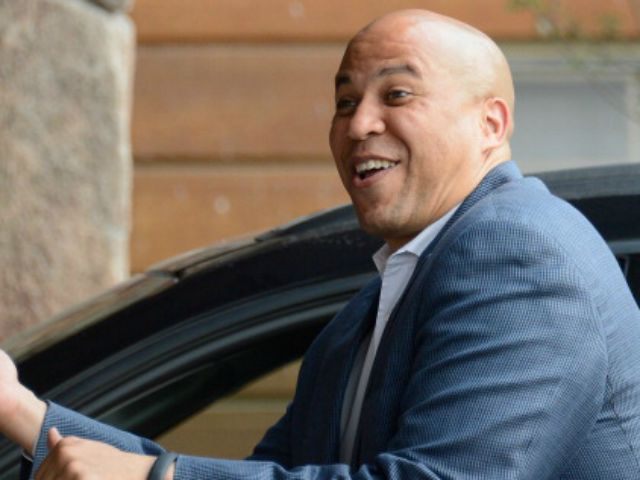According to the New York Times, while Dale Russakoff’s new book, The Prize: Who’s in Charge of America’s Schools? has just hit bookstores Tuesday, it is already “a source of enormous contention.”
In May of 2014, Breitbart News had already reported on Russakoff’s exposé of yet another failed liberal education reform scheme, this one to supposedly make Newark, New Jersey a “symbol of educational excellence for the whole nation.”
The plot began in 2010 when Facebook’s Mark Zuckerberg became the subject of much media attention as he announced on Oprah that he would throw $100 million into Newark, New Jersey’s failing public school system. Gov. Chris Christie (R) and then-Newark mayor – now U.S. Senator – Cory Booker (D) gave the go-ahead for another “bipartisan” effort at education reform in the city.
Russakoff wrote in the New Yorker last year:
Reformers compared their cause to the civil-rights movement, aware that many of their key opponents were descendants of the old civil-rights establishment: unions and urban politicians determined to protect thousands of public jobs in cities where secure employment was rare. Decades of research have shown that experiences at home and in neighborhoods have far more influence on children’s academic achievement than classroom instruction. But reformers argued that well-run schools with the flexibility to recruit the best teachers could overcome many of the effects of poverty, broken homes, and exposure to violence. That usually meant charter schools, which operated free of the district schools’ large bureaucracies and union rules. “We know what works,” Booker and other reformers often said. They blamed vested interests for using poverty as an excuse for failure, and dismissed competing approaches as incrementalism. Education needed “transformational change.”
The plan called for significant amounts of philanthropic support, which would require no public review of spending priorities. Zuckerberg apparently agreed and pledged $100 million to Booker and Christie’s cause, though the Facebook founder admitted he knew little about urban education reform.
Like many poorly-thought out, liberal “spending” social justice programs, the Newark education reform scheme ended up with Zuckerberg’s money padding the pockets of many education “consultants,” but did little to actually help children.
As the NYT notes:
Almost half of Zuckerberg’s grant was spent (or committed) to help gain new labor contracts; out of the $200 million in his money and the matching grant, a full $21 million went to buying out unwanted teachers and other staff members, for instance. Yet Zuckerberg didn’t realize until too late that New Jersey state law — not teacher contracts — imposed the seniority system he was trying to get rid of.
School reformers are obviously irritated at how they are portrayed in Russakoff’s book, but she holds fast to the idea that teachers’ unions are the primary obstacle to real change in public schools. Russakoff observes that the main change in Newark is that over 30 percent of students in the school district are now being educated in charter schools, the results of which are a mixed bag.
Zuckerberg’s lack of experience in urban school reform and the debacle in Newark did not deter him last year from pledging $120 million to low-income schools in the San Francisco Bay Area.
According to the NYT, Zuckerberg has “learned his lesson” and now plans to collaborate with parents, teachers and school leaders on this latest education reform. That may be true, but the assertion that he is wiser is debatable since, in a May 2014 op-ed, Zuckerberg and his wife, Dr. Priscilla Chan, wrote:
[W]e’ve seen that targeted investments can be catalysts for much bigger changes in communities, and give vital support to leaders and organizations. In Newark, a lot of the work we started is still underway, but we’ve already seen some good results.
Apparently, having some of the 30 percent of Newark students who left the public schools for charter schools do better on test scores is “good results.” As Russakoff says in her book, however, “What would become of the children left behind in district schools?”
The problem, as the author noted in her New Yorker article last year, is that “Decades of research have shown that experiences at home and in neighborhoods have far more influence on children’s academic achievement than classroom instruction.”
But this is a politically inconvenient truth for liberal politicians and their investors.
We see that after half a century of spending billions of taxpayer funds, SAT scores are the lowest this year they have been in four decades. In fact, the College Board knows that to have scores from next year’s “new” SAT – Common Core-aligned – available for comparison to scores from the past would cause an uproar, so it has decided not to allow comparisons with previous years’ scores. Hiding the decline is more politically expedient.

COMMENTS
Please let us know if you're having issues with commenting.